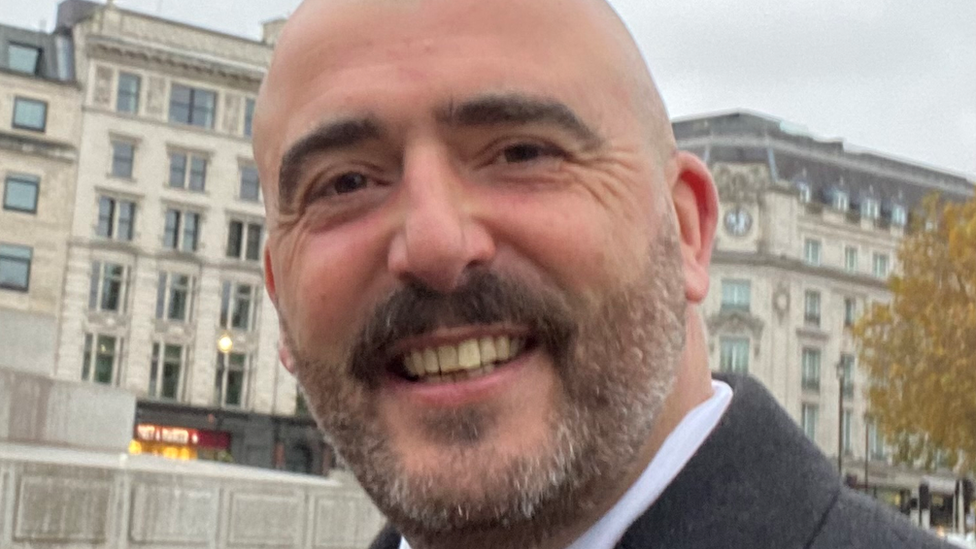'Hunted' RAF veteran calls for LGBT compensation
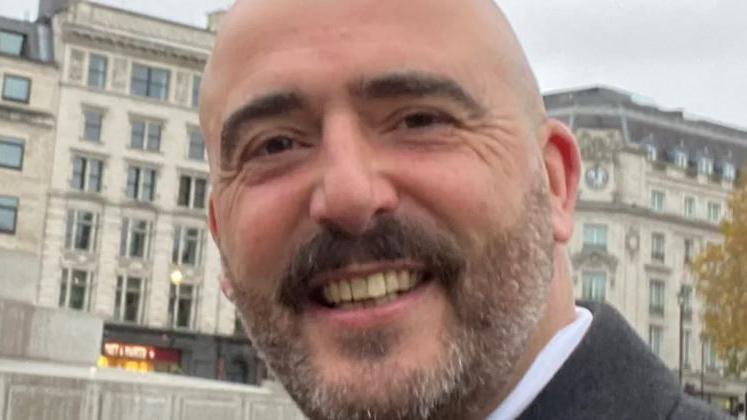
Kevin Bazeley spent nine years in the armed forces before he was forced to leave in 1994 for being gay
- Published
A Worcestershire veteran who felt "hunted" by the RAF due to his sexuality has called for the government to distribute compensation to other gay veterans before it is too late.
Kevin Bazeley, from Worcester, was arrested in 1994 when his sexuality was revealed to armed forces police.
It was illegal for LGBT people to serve in the UK military until 2000, which Rishi Sunak has labelled an "appalling failure".
Despite the prime minister's apology on behalf of the government for the historical treatment of LGBT veterans, Mr Bazeley fears many will die before being fully compensated.
"There are people who cannot wait any longer," he said, appealing for the government to "act soon".
He said the government did not need to have the full compensation package in place but "there are some who need that support now".
Listen on BBC Sounds: Worcester veteran's fears over compensation
Mr Bazeley served nine years in the Royal Air Force after joining from school in 1985, with the dream to fly.
Then 18, Mr Bazeley said he was unaware of his sexuality.
He went on to graduate as a navigator in 1988 before serving in VC10s and Nimrods and getting married to a woman, with whom he had two children.
"It was only in the last couple of years [of serving] that I actually came out myself," he said.
"In those last couple of years I realised I was wanted, I was hunted in the Air Force.
"You would hear and see stories that someone had been caught at this base, someone has been caught at that base so there was always that realisation at any moment that everything could come crashing down."
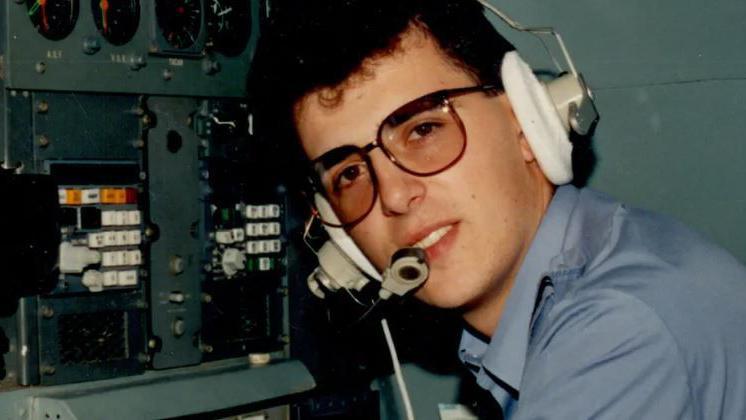
The navigator served on VC10s during the first Gulf War, in 1991
He continued: "During these days they would set up stings.
"The military police would park outside of known gay establishments watching who went into them.
"They would set up entrapments, there was some really diabolical practices that went on during those years of the gay ban."
Mr Bazeley told BBC Hereford & Worcester he was eventually discovered by his employer when he lost a wallet containing "incriminating evidence" - his membership card for the Gay Bikers Motorcycle Club.
Before his discovery and eventual departure from the military, Mr Bazeley said "that fear was always there".
And when that day arrived he said it was a "humiliation" as he was escorted away from an aircraft by the squadron wing commander.
What came next was a series of "very personal" interrogations from his superior officers.
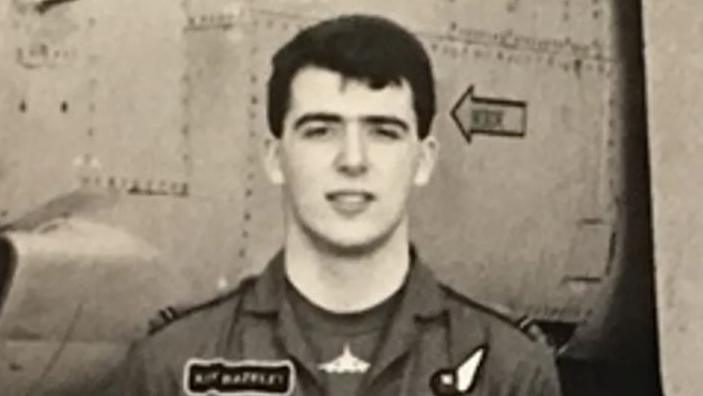
Mr Bazeley graduated as an RAF navigator in 1988
Now 30 years on from his dismissal and 24 years on from the abolishment of the law preventing LGBT people serving in the armed forces, Mr Bazeley wants to see prompt action from the government to fully compensate gay veterans.
The Etherton Report - officially known as the LGBT Veterans Independent Review - began in 2022 and heard about the experiences of 1,145 veterans who served between 1967 and 2000.
The report described an "incomprehensible policy of homophobic bigotry" and uncovered accounts of homophobia, sexual assaults, blackmail, "disgraceful" medical examinations and conversion therapy.
It gave 49 recommendations to the government, including:
Affected veterans to be given an "appropriate financial reward" capped at £50m overall
The restoration of medals that had to be handed back on dismissal or discharge
The clarification of pension rights
The government said it had already implemented more than half of the recommendations made by Lord Etherton's report and was encouraging LGBT veterans to apply for restorative measures through a website that has been set up.
Mr Bazeley has encouraged the government to "make a difference" by providing monetary compensation, particularly to any veterans who knew they were terminally ill.
"That money, that compensation could really make a difference to the last few months of their lives," he said.
- Published20 February 2024
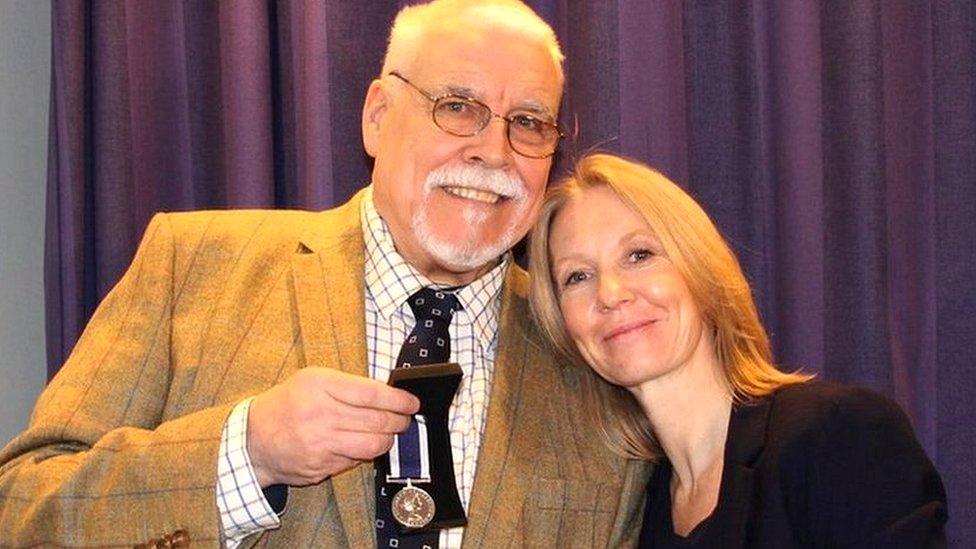
- Published11 December 2023
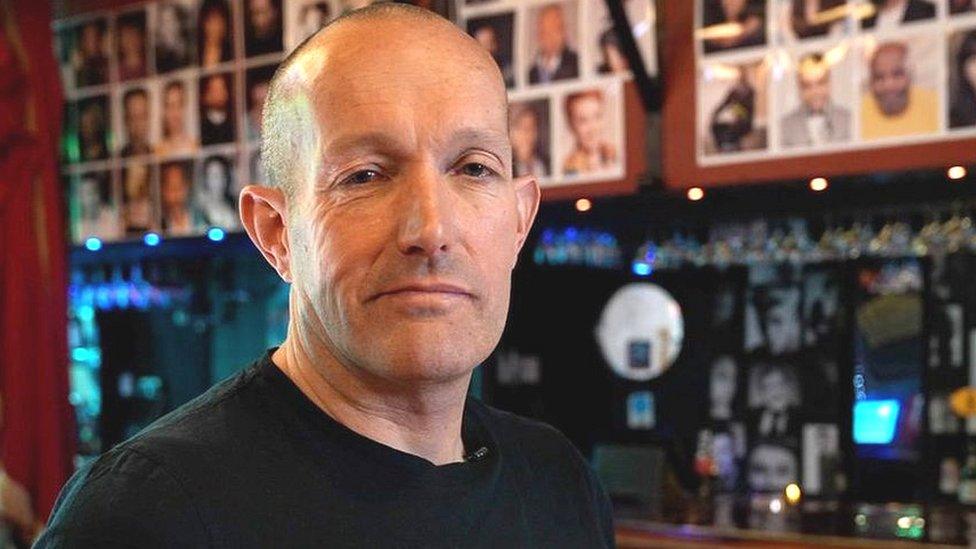
- Published20 July 2023
